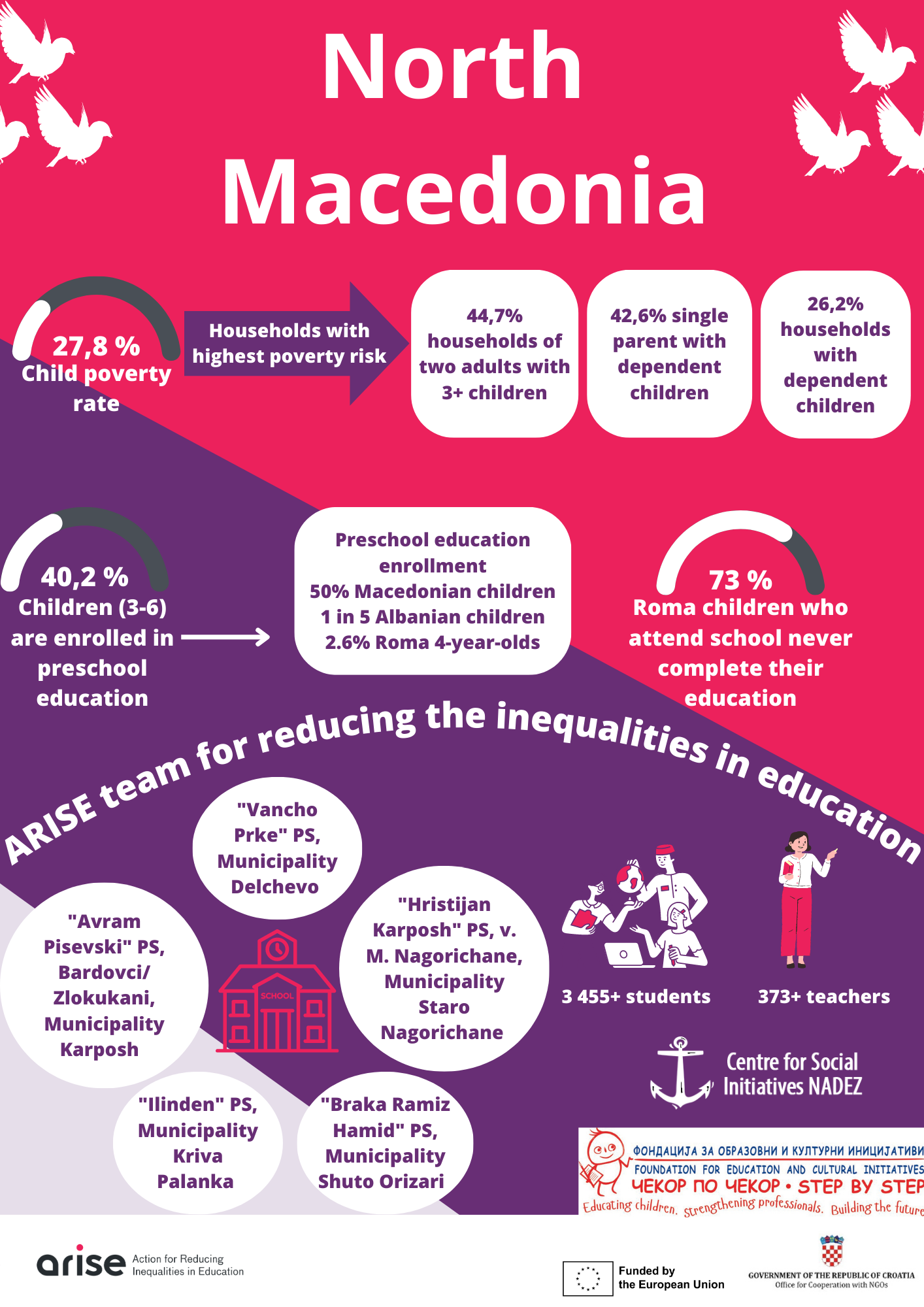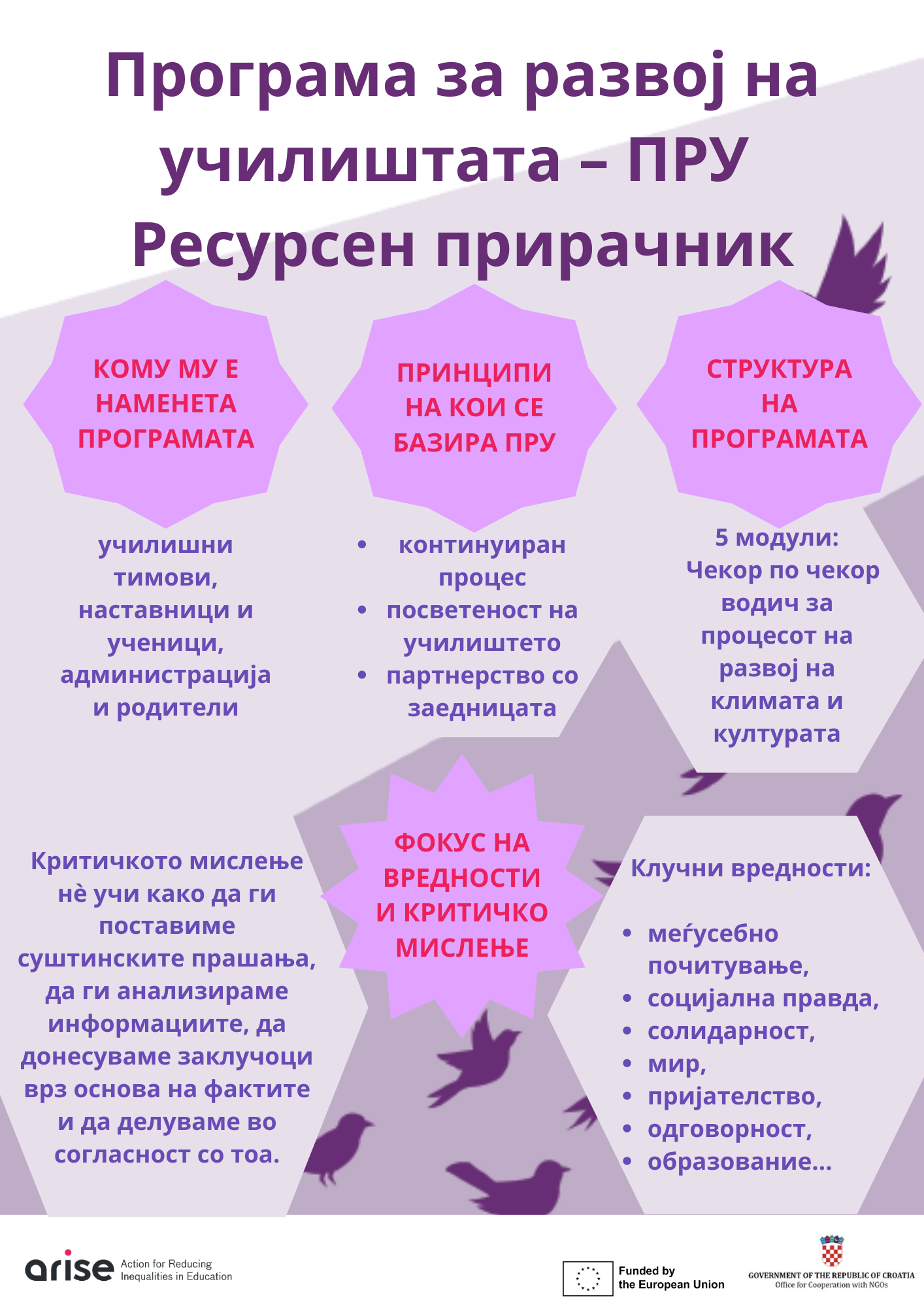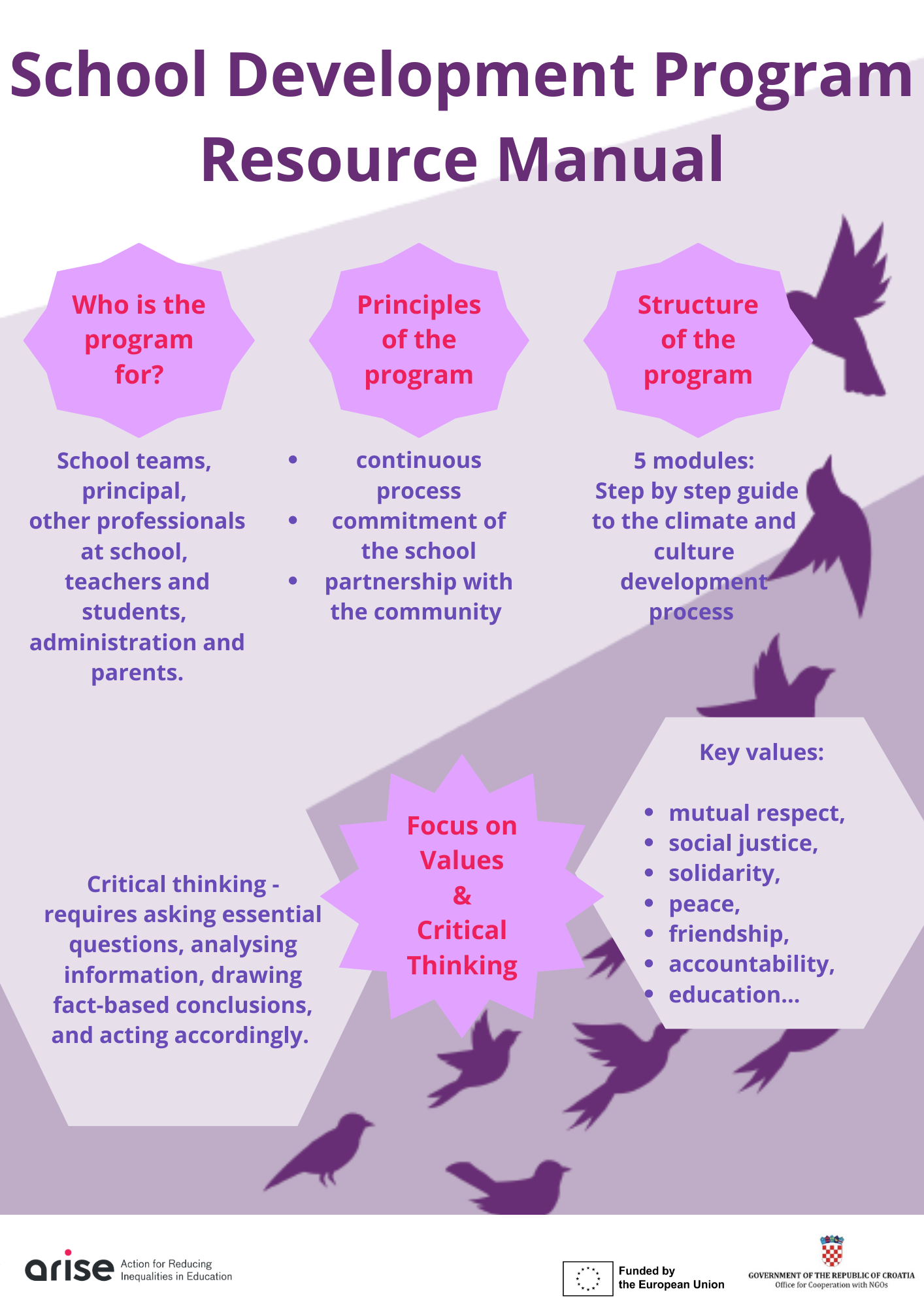This article provides short overview of the main issues connected to inequalities in education in North Macedonia and provides directions towards potential initiatives that may help to address them.
National report for North Macedonia revealed the high poverty risk rate which in 2019 amounted to 21.6%, while the child poverty rate was even higher - 27.8%1. The analyses of the types of households indicate that the poverty risk is highest in households of two adults with three or more dependent children was 44,7%, single parents with dependent children 42,6% and households with dependent children 26,2%.
When focusing on the inequalities in education, it must be noted that the enrolment rate of children aged 3 to 6 in preschool education in 2019 was 40.2%1. Moreover, preschool education participation is also rather low among minority groups. More than half of the Macedonian children attend preschool education, compared to less than one in five Albanian children and only 2.6% of the 4-year-old Roma community children attend preschool education3.
Similar challenges persist across educational levels:
- 73% of Roma children who attend school never complete their education,
- 18.14% of youth was not included in education, employment or training in 2019,
- The SES is one of the factors that exert the strongest adverse influence - it's negative effects include a low level of participation in education, the likelihood of dropping out, poor quality of learning and insufficient progression through the education process.
A more elaborated overview of the challenges regarding the inequalities in education in North Macedonia is available in the policy brief, as well as good policy examples and recommendations for further improvement of policies.
When discussing the inequalities in education, we must take into the consideration importance and significance of the schools and teachers for the educational process. Within the ARISE project, we have developed a School Development Program Resource Manual that is intended primarily to empower schools in the process of creating a safe environment where every child feels accepted and develops the competences, he or she needs for living and creating a society based on universal human values, mutual respect and support.
The Foundation for Educational and Cultural Initiatives “Step By Step”, ARISE project partner in North Macedonia guides, coordinates, participates in and directly implements activities that promote innovation, progress and development of the work of preschool institutions and primary schools, is implementing ARISE School Development Program in five schools:
- "Avram Pisevski" PS, Bardovci/Zlokukani, Municipality Karposh
- "Braka Ramiz Hamid" PS, Municipality Shuto Orizari
- "Ilinden" PS, Municipality Kriva Palanka
- "Vancho Prke" PS, Municipality Delchevo
- "Hristijan Karposh" PS, v. M. Nagorichane, Municipality Staro Nagorichane
Overall, more than 3 455 students and 373 teachers in North Macedonia are direct or indirect beneficiaries of the step-by-step program focused on school climate and culture development.
School Development Resource Manual is available in English, Albanian, Bosnian, Macedonian and Serbian language.
1 State Statistical Office, http://www.stat.gov.mk/pdf/2020/4.1.20.113_mk.pdf
2 EU Commission Staff Working Document, North Macedonia 2020 Report, Brussels, 6.10.2020
3 Birn, Kevin, Analyses of the Situation of Women and Children in the Republic of North Macedonia [online source] / Kevin Birn – Skopje, UNICEF Office 2020



